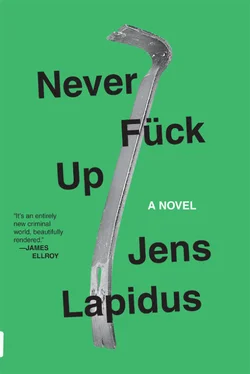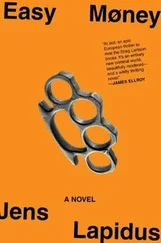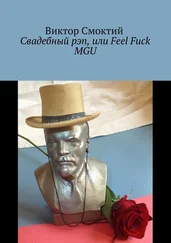“So, what do you think? Will the media calm down?”
“They always calm down. But if you’re unlucky, some damn politician’s going to add his two cents, too. Unfortunately, that usually sets a fire under IA’s ass. And then the police commissioner’s got to make a decision about where you’ll be working, too.”
“When will that happen?”
Adamsson put both hands on the table. They were rough hands. Hands that’d taken their fair share of hits in their day: probably been pricked on injection needles, dug through vomit, but also dealt a few more blows than most. He sighed.
“I just spoke to him. He’s going to wait for IA’s verdict. If they make a case of it, prosecute you and get a conviction, there’s a risk that you’ll have to quit altogether. If they drop the preliminary investigation, the situation is more hopeful, but even then there’s a risk that we’ll have to transfer you.”
Thomas didn’t know what to say.
“Andrén, I just wanted to tell you that I completely understand. I’ve read your report and the assault report. I mean, I know Torsten Göransson from way back. He was a good boxer, twenty-five or so years ago. Trained at Linnéa. You know that club?”
“Of course.”
“A real beast. Then something went wrong. Or else it’d gone wrong already before the boxing. I don’t know. Anyway, he’s been convicted of assault at least five times before. Summa summarum: you were totally right to use the batons. And it’s not your fault that the new collapsible batons are too weak. And it’s not your fault that Cecilia Lindqvist is too weak.”
Thomas nodded in time to Adamsson’s harangue. He thought, Shouldn’t the guy at least mention the incident at the morgue? But he didn’t say anything. Instead he said, “Exactly. If we’d been two regular officers we’d have been able to handle him without using the batons so much. I appreciate your support, Adamsson. It feels good. But, can you tell me one thing?”
“I’ll do my best.”
“Who made the call for me to take the shift with Cecilia Lindqvist? Everyone who knows me knows I don’t work too well with little girls.”
“I honestly don’t know who made that call. But Ljunggren had to cover for Fransson, who was sick. So we had to put someone in. That’s just the routine, you know that. But I’ll look into it.”
Thomas nodded. Adamsson didn’t say anything. His facial expression, however, said: This conversation is over.
Thomas wanted to say something about the morgue. Get a sensible explanation.
But no words came. He got up.
“One more thing, Andrén. Take a few weeks off. Go on disability for a month or so. I really think you should. It’ll be hard, being here.”
It was an order.
On his way home, Thomas drove the roundabout way across Norrmalm. Didn’t take the Essingeleden highway. Needed time to think. The lower part of Fleminggatan: Irish pubs and small restaurants. He thought about his and Ljunggren’s night at Friden. The places he was driving past now didn’t exactly radiate glamour. But Friden still took home the dumpy prize.
Then it hit him: he couldn’t exactly put his finger on what it was, but Ljunggren’d been acting weird. First he’d been all about them grabbing a beer after work. And then, when they got to Friden, it was like he had nothing to say. Ljunggren wasn’t the world’s most talkative person, sure—still, they usually conversed at their own pace, exchanged a few words. Analyzed the day. Complained about their bosses, worthless colleagues. Evaluated the women in the place. But yesterday, Ljunggren’d seemed scattered. Flitted between topics and kept bringing up the same thing over and over: the way Thomas’d dealt with the drunk boxer. And all of that could’ve been normal, except for his comment after a while, a few minutes before those guys at the next table over started talking to them. As if Ljunggren’d had to force his question out: “Hey Thomas, you’re not mad at me, are you? I mean, I got called to something else, that’s why they sent that chick.” But even that wasn’t strange—of course he felt bad about what happened. But the thing he said after that—after Thomas’d shaken his head and said it wasn’t his responsibility—was all to hell:
“Andrén, now that they’ve started this whole internal investigation you’ll stop digging around in that Hägerström crap, right?”
At first, Thomas hadn’t understood what he meant. Then it became clear what he was implying. His only response was, “I’m still a cop. So I’ll keep doing what cops do.”
Thomas drove across the Central Bridge toward Slussen. Riddarholmen, with all the courthouses, was on his right. Where they claimed that justice was served in Sweden. Lady Justice was blind, they said. It was true, she was blind.
He added up the facts. Someone’d deleted things from his report. Someone’d deleted things from the forensic pathologist’s autopsy report. Adamsson wanted to stop him and Hägerström from taking pictures of the corpse. Then something else hit him: Ljunggren’d called him while he was at the morgue—tried to get him to come on a call, said something about a shoplifter in the Mörby mall. Not only had he asked him to stop the murder investigation, maybe he’d tried to trick him too.
Summation of his analysis: there was only one explanation for all the weirdness piling up in his head. Someone wanted to stop him from continuing his search. That someone might be Ljunggren. But how much power did Jörgen Ljunggren have to make things like that happen? No, it wasn’t Ljunggren. And Adamsson? Maybe. Thomas had to find out more.
But right now, he couldn’t care less who it was. He had to do something on his own. He made a U-turn at Slussen.
Twenty minutes later he got out of the car in front of Danderyd’s morgue. The sky was a clear blue. His nose still hurt like hell. He thought about the smell in the room with the cold chambers. He thought about Hägerström. Suddenly, he changed his mind. Called Hägerström.
He didn’t pick up. Thomas left a message. “Hi there, it’s Andrén. A lot of shit happened today. You might already know about it, but I’ll tell you later. Anyway, I’m going in to see the pathologist right now. Just so you know.”
When he’d hung up, he realized that Hägerström was really the enemy. Being disloyal to police colleagues was what Hägerström’s past life was all about. Those IA rats.
He rang the bell at the welcome desk. An autopsy technician came out. He looked surprised.
“Hi, may I help you?”
“Yes. I was here a few days ago. Andrén, Southern District.”
“Right, now I recognize you.”
Not an unusual reaction from people who’d previously only seen him in uniform. As if he were a completely different person in his civilian clothes. But considering the Adamsson incident, maybe this little autopsy technician ought to have a better memory.
“You’re Christian Nilsson?”
“Yes, that’s me.”
Thomas lowered his voice. Unnecessary to speak too loudly. Nilsson might get stressed out by the thought that someone could come into the waiting room and hear.
“You were present at the autopsy of the corpse that me and my colleague were looking at the last time we were here?”
“I don’t remember exactly, it’s been busy here lately.”
“Okay. Then I can tell you that you were present, the autopsy report says so. The dead man’s face was basically torn off and the guy had no teeth, so we need more input to make a positive ID. Can you tell me something? Was there anything special about the victim’s right arm?”
“As far as I remember, things got a little tumultuous when you were here last. And I can tell you straight away that I don’t remember all the details from that autopsy, unfortunately. But if you want, I can get my report so that you can see what it says in it.”
Читать дальше












